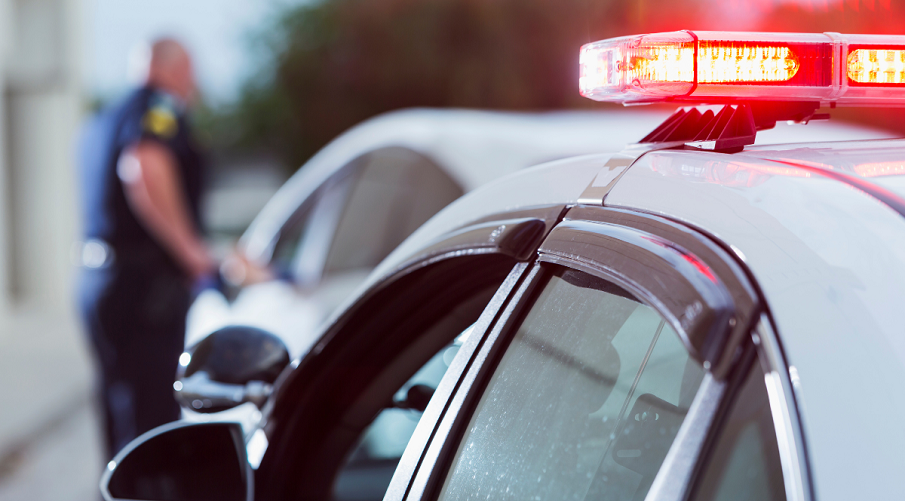In general, police officers exist to keep us safe.
They’re supposed to keep the peace, catch the bad guys, and make us feel more secure in our environments.
But unfortunately, not all police interactions go according to plan.
There are corrupt police officers, malicious actors and bullies on the team, situations that produce unnecessarily high anxiety, and pieces of confusing information that can lead officers to act in unnecessary ways.
We can see it all around the world.
If you want to protect yourself from unfair police treatment, if you want to maximize your legal options, and if you want to minimize the possibility of being injured or killed, it’s important to know how to properly conduct yourself during police interactions.
The advice in this guide applies to a wide variety of police interactions, such as being pulled over in a routine traffic stop or being questioned by police at your home.
8 Ways to Protect Yourself During Police Interactions:

1. Remain Silent
We all know the phrase “you have the right to remain silent,” but a startlingly low number of people actually capitalize on this right.
Remaining silent is arguably the most critical piece of advice to follow in any police interaction.
Why is that the case?
For starters, we can explore the companion phrase, “Anything you say can and will be used against you in a court of law.”
If you accidentally admit to committing a crime, if you lie about something, or if you simply contradict yourself, your words can work against you.
Many people have found themselves in prison unnecessarily because they blurted out the wrong thing at the wrong time.
Obviously, you shouldn’t incriminate yourself.
But talking (especially when you are angry) can render you vulnerable in ways that aren’t always predictable.
Without a lawyer guiding you, your best option is simply not talking at all.
2. Be Polite and Comply With Requirements
That said, it is a good idea to remain polite and comply with any legal requirements that apply to you.
Being polite and cooperative with police makes them less likely to retaliate against you and allows the process to move forward smoothly, even a smile and a simple exchange of greetings can dictate a much better interaction.
Plus, depending on where you live, you may be required to take certain actions or provide police officers with specific pieces of information; for example, if you’re pulled over, you may be required to give police officers your name and show them your driver’s license.
Don’t pick a fight unnecessarily.
3. Move Slowly and Deliberately
Police officers cause around 250,000 civilian injuries every year, and more than 600 deaths in the US alone.
Many of these happen because police respond to suspicious or sudden movements.
Regardless of whether those individual instances are justified, it’s a good idea for you to move slowly and deliberately.
It’s even better to announce what you’re about to do before you do it, for example: “I’m going to reach into my glove box to get my registration.”
4. Record Everything
In nearly all areas, you’re allowed to record police interactions so long as you’re not directly interfering with the police officer’s ability to do their job.
That means you can record a video of the entire interaction, starting from the beginning.
If the police officer has a problem with it, ask them how the recording is interfering with their ability to perform their duty and politely insist that it is your right to record this interaction for your own protection.
5. Don’t Consent to Searches
By default, you are not required to consent to any searches of your home or property.
This changes only if the police officer has probable cause to suspect that you have committed a crime or if there is a warrant for the search.
If a police officer asks to search your home, vehicle, or other property, you should politely decline, even if you feel you have nothing to hide.
If the police officer has a warrant, ask to see it before you allow them entry.
6. Pay Attention to How You’re Being Treated
Pay close attention to what police officers do and don’t do during your interactions, especially if you’re not recording.
These sequences of events are very important for expanding your future legal options.
For example, police officers are required to read you your Miranda rights if they take you into custody or are subjected to a custodial interrogation.
If they don’t, this misconduct could allow you to evade whatever charges you faced.
7. Get an Attorney ASAP
If you’re being interrogated or arrested, it’s important to get a lawyer at your side as soon as possible.
Your lawyer can help you understand the charges you face, better understand your legal rights, and give you advice that can help improve your final outcome.
8. Educate Yourself
Finally, commit to educating yourself.
Even reading this article is a huge step.
You should understand the laws and your rights in your area, so you’re adequately prepared for any police interaction in the future.
The advice in this guide is meant to be mostly universal, but it’s still not comprehensive, and there are likely some unique considerations to bear in mind for your area, in particular.
What You Should Remember?
While the advice in this guide can and should be helpful, it’s no substitute for your continued education, and it’s certainly no substitute for genuine legal counsel.
If you ever find yourself in trouble with the police, do your best to keep your wits about you and contact a lawyer as soon as you can.






